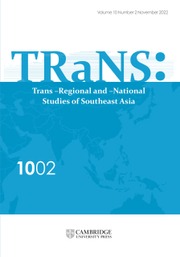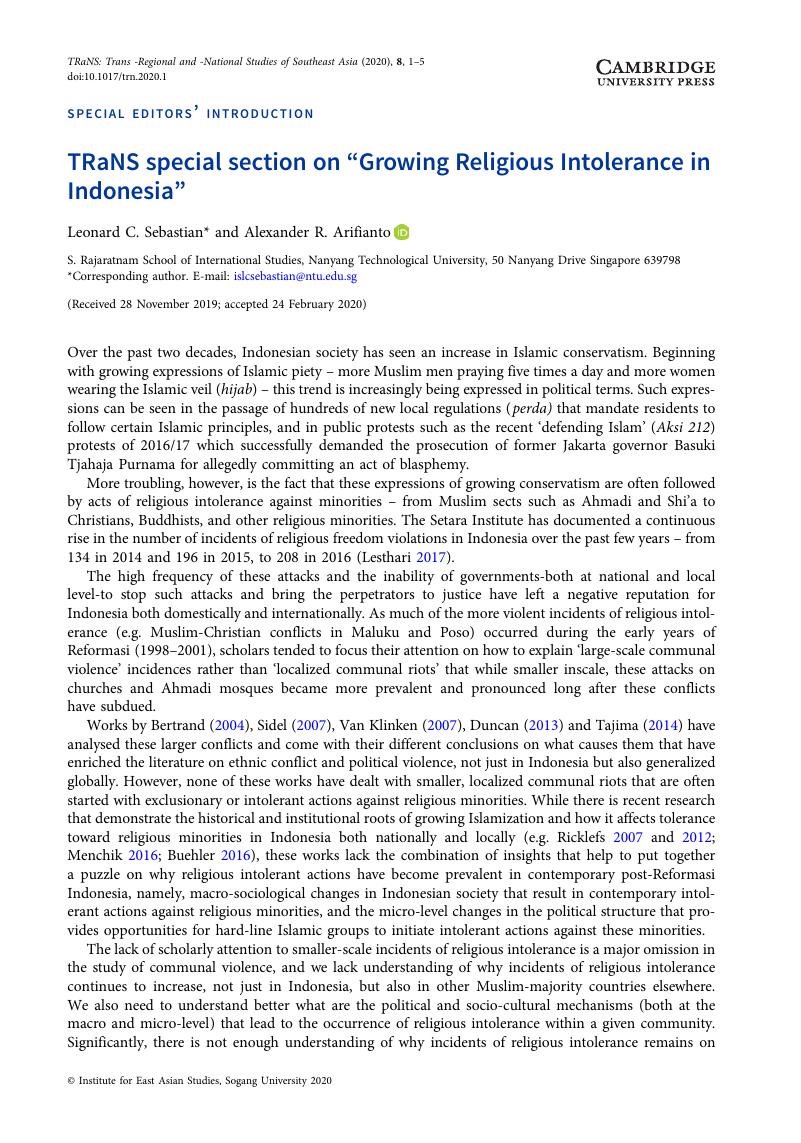Crossref Citations
This article has been cited by the following publications. This list is generated based on data provided by Crossref.
Sebastian, Leonard C.
and
Chen, Jonathan
2021.
Indonesia’s Foreign and Maritime Policies Under Joko Widodo: Domestic and External Determinants.
Journal of Asian Security and International Affairs,
Vol. 8,
Issue. 3,
p.
287.
Lücking, Mirjam
2021.
Breaching Boundaries in Muslim and Christian Tourism from Indonesia to Israel and Palestine.
TRaNS: Trans -Regional and -National Studies of Southeast Asia,
Vol. 9,
Issue. 2,
p.
129.
Mashuri, Ali
Hasanah, Nur
and
Wihartati, Wening
2021.
Victimisation-by-ingroup Consciousness: Its Antecedents and Impact on Radicalism.
Psychology and Developing Societies,
Vol. 33,
Issue. 2,
p.
288.
Okthariza, Noory
2022.
Society and Democracy in South Korea and Indonesia.
p.
39.
Buehler, Michael
2023.
Do discriminatory laws have societal origins? The diffusion of anti-Ahmadiyah regulations in Indonesia.
Politics and Religion,
Vol. 16,
Issue. 3,
p.
468.
Brata, Aloysius Gunadi
Ambarwati, Diah Kartika
Lobo, Lorensius Toto
Patnasari, Yenny
and
Sukamto, Andreas
2023.
Does tolerance matter? The spatial distribution of creative industries across cities in Indonesia.
Quaestiones Geographicae,
Vol. 42,
Issue. 2,
p.
5.
Mambu, Joseph Ernest
2023.
Embedding Sustainable Development Goals into critical English language teaching and learning.
Critical Inquiry in Language Studies,
Vol. 20,
Issue. 1,
p.
46.
Fenton, Adam James
2024.
The Pancasila Ideological Direction Bill (RUU‐HIP): A Missed Opportunity?.
Politics and Governance,
Vol. 12,
Issue. ,
Khaliq, Sohaib
2024.
Democratisation and State–religion Relations in Post-authoritarian Indonesia and Pakistan (1998–2018).
South Asian Survey,
Vol. 31,
Issue. 1,
p.
63.



